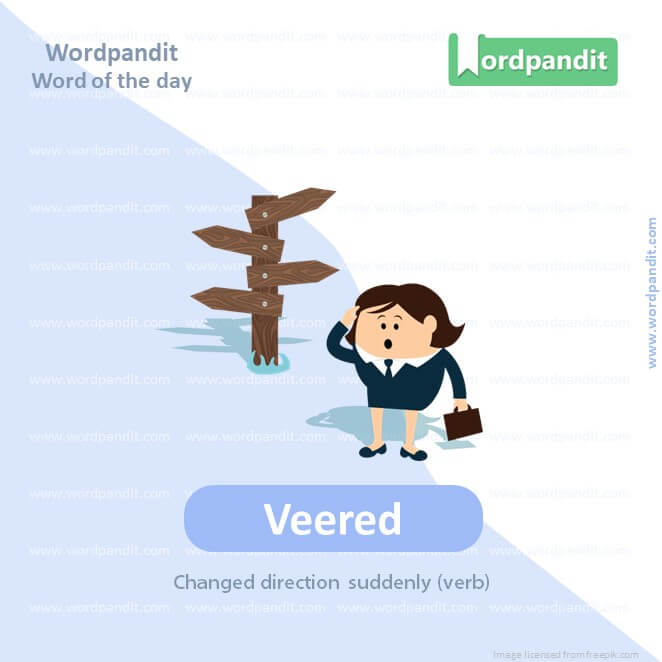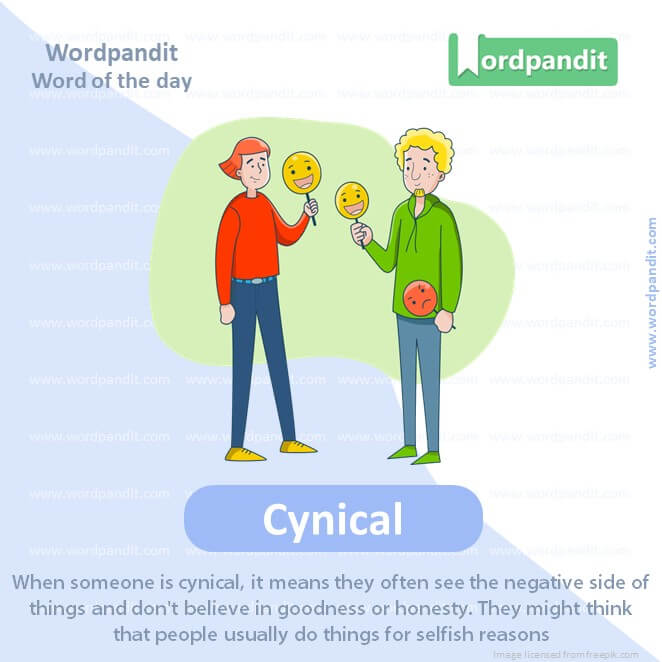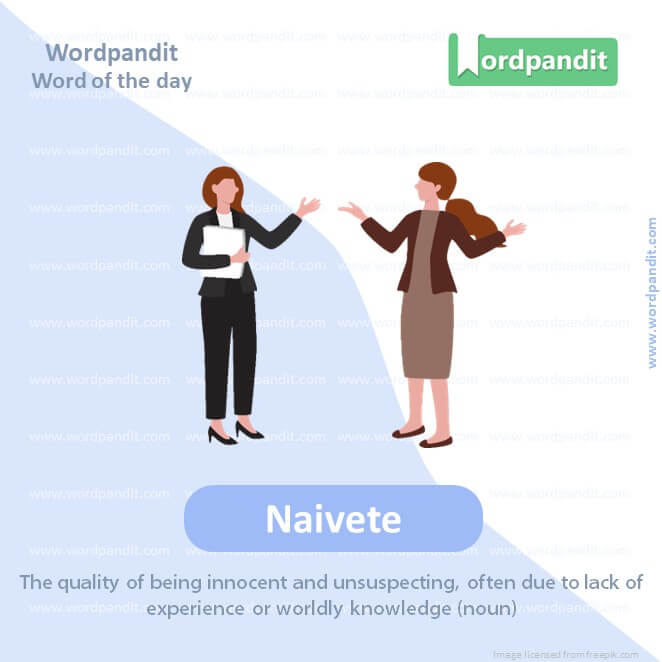Daily Vocabulary Words: List of Daily Used Words in Leading Indian Newspapers
Hi there. Welcome to this special section @ Wordpandit. Our endeavour here is straightforward: highlighting daily vocabulary words that you would come across in leading newspapers in the country. We have included the following newspapers in our selection:
• The Times of India
• The Economic Times
• Hindustan Times
• Mint
• Indian Express
We are putting in extensive work to develop your vocabulary. All you have to do is be regular with this section and check out this post daily. This is your repository of commonly used words; essentially, we are posting a list of daily used words. Hence, this has significant practical application as it teaches you words that are commonly used in leading publications mentioned above.
Visit the website daily to learn words from leading Indian newspapers.

WORD-1: Coalesced
CONTEXT: Pakistanis braved stiff odds on Feb 8 to cast their vote. A strong electoral tsunami, led by young voters, coalesced a distinct anti-army mood with deep anger at economic hardships and a sympathy wave for jailed Imran Khan and his beleaguered PTI.
SOURCE: Times of India
EXPLANATORY PARAGRAPH: Imagine if you and your friends are playing separately in the playground, and then you all decide to come together to build one big sandcastle. This coming together to form one big group or thing is called coalescing. It’s like when separate drops of water come together to make a puddle or when different ideas or people come together to make something special.
MEANING: Came together to form one mass or whole (verb).
PRONUNCIATION: ko-uh-LESST
SYNONYMS: united, merged, fused, amalgamated, blended, integrated
USAGE EXAMPLES:
1. The two small streams coalesced into a large river.
2. Their ideas coalesced to form a new project.
3. The group coalesced around a common goal.
4. Over time, the separate villages coalesced into a single community.

WORD-2: Grizzled
CONTEXT: Pakistan’s youth almost upset crooked plans of its grizzled generals. Lesson for old & powerful everywhere
SOURCE: Times of India
EXPLANATORY PARAGRAPH: Imagine someone, maybe a grandpa, who has hair that’s a mix of gray and their original color, making it look kind of like the fur of a wise, old wolf. This look of having a bit of gray or white in the hair because of getting older or maybe from lots of outdoor adventures is called grizzled. It’s like when someone looks experienced or has been through a lot, shown by the color in their hair.
MEANING: Having hair that is gray or partly gray, often associated with age or experience (adjective).
PRONUNCIATION: GRIZ-zuld
SYNONYMS: gray-haired, silver-haired, hoary, salt-and-pepper, frosted, white-haired
USAGE EXAMPLES:
1. The grizzled veteran shared stories of his adventures.
2. His grizzled beard made him look distinguished.
3. The grizzled old dog lay in the sun.
4. She admired the grizzled appearance of the mountain guide.

WORD-3: Veered
CONTEXT: An election most of the world likened to a fixed match has veered off script. Thank Pakistani youth for it.
SOURCE: Times of India
EXPLANATORY PARAGRAPH: Imagine you’re riding your bike straight down the sidewalk, and suddenly you turn sharply to avoid hitting a rock. This quick turn or change in direction is called veering. It’s like when you’re going one way and then suddenly decide to go a different way, either to avoid something or just because you changed your mind.
MEANING: Changed direction suddenly (verb).
PRONUNCIATION: VEERD
SYNONYMS: swerved, turned, diverted, shifted, changed course, deviated
USAGE EXAMPLES:
1. The car veered to avoid the obstacle.
2. The conversation veered off into an unexpected topic.
3. The ship veered in the strong wind.
4. He veered between opinions, unable to decide.
WORD-4: Sweeping
CONTEXT: Charged up by Imran Khan’s rhetoric of sweeping away the old order, we have an extraordinary situation where independents (read Imran’s PTI supporters) have bagged more seats than established political parties.
SOURCE: Times of India
EXPLANATORY PARAGRAPH: Imagine using a big broom to clean the entire floor of your house, reaching every corner and making everything neat and tidy. This act of cleaning a large area thoroughly or when something affects a lot of things all at once is called sweeping. It’s like when something big happens and changes many things quickly, like a giant wave washing over the beach and leaving it looking different.
MEANING: Affecting many things or areas; wide-ranging or comprehensive (adjective).
PRONUNCIATION: SWEEP-ing
SYNONYMS: broad, extensive, wide-ranging, comprehensive, far-reaching, all-encompassing
USAGE EXAMPLES:
1. The new law had sweeping effects on the industry.
2. She won the competition with a sweeping victory.
3. The storm caused sweeping damage across the coast.
4. He made a sweeping gesture to show the size of the area.
WORD-5: Extraordinary
CONTEXT: Charged up by Imran Khan’s rhetoric of sweeping away the old order, we have an extraordinary situation where independents (read Imran’s PTI supporters) have bagged more seats than established political parties.
SOURCE: Times of India
EXPLANATORY PARAGRAPH: Imagine seeing a dog that can skateboard better than anyone you know, doing tricks and turns like a pro. This dog is not just any dog; it’s very special and not something you see every day. When something or someone is so amazing, unusual, or different from what is normal, we call it extraordinary. It’s like when something makes you say “wow” because it’s so far from the ordinary.
MEANING: Very unusual, remarkable, or amazing (adjective).
PRONUNCIATION: ek-STRAWR-din-air-ee
SYNONYMS: remarkable, incredible, amazing, exceptional, astounding, phenomenal
USAGE EXAMPLES:
1. The athlete’s extraordinary ability amazed the crowd.
2. She had an extraordinary talent for music.
3. The scientist made an extraordinary discovery.
4. It was an extraordinary sight to behold.
WORD-6: Channelled
CONTEXT: Books, movies and music channelled youth critique of a jaded cynical establishment. Never mind that many of the young protesters later went on to represent another cynical order.
SOURCE: Times of India
EXPLANATORY PARAGRAPH: Imagine you have a stream of water in your backyard, and you dig a path for it to follow so it can flow into your garden and water the plants. This guiding of the water through a path is called channelling. It’s like when you use your energy, thoughts, or resources in a specific direction or purpose, guiding them to go exactly where you want them to.
MEANING: Directed or conveyed through a specific path or medium (verb).
PRONUNCIATION: CHAN-uhld
SYNONYMS: directed, funneled, guided, conveyed, transmitted, routed
USAGE EXAMPLES:
1. She channelled her efforts into finishing the project.
2. The engineer channelled the water through a new pipe.
3. He channelled his creativity into his art.
4. The company channelled funds into research and development.

WORD-7: Cynical
CONTEXT: Books, movies and music channelled youth critique of a jaded cynical establishment. Never mind that many of the young protesters later went on to represent another cynical order.
SOURCE: Times of India
EXPLANATORY PARAGRAPH: Imagine someone who doesn’t believe that people do good things just to be nice. They think that there’s always a catch or that people only do things for their own benefit, not because they really want to help. This way of thinking, where someone doubts or questions if anything is genuinely good or done without selfish reasons, is called being cynical. It’s like when you’re not sure if someone is being nice just to be nice or if they want something in return.
MEANING: When someone is cynical, it means they often see the negative side of things and don’t believe in goodness or honesty. They might think that people usually do things for selfish reasons (adjective).
PRONUNCIATION: SIN-i-kuhl
SYNONYMS: skeptical, distrustful, doubting, pessimistic, disbelieving, scornful
USAGE EXAMPLES:
1. His cynical view made it hard for him to trust others.
2. The movie presented a cynical take on love.
3. She was known for her cynical humor.
4. Despite his success, he remained cynical about the industry.
WORD-8: Energises
CONTEXT: Never mind that many of the young protesters later went on to represent another cynical order. Nothing energises society like young people who set off to change it.
SOURCE: Times of India
EXPLANATORY PARAGRAPH: Imagine you’re feeling sleepy, but then you jump up and dance to your favorite song, and suddenly you’re full of energy and ready to run around and play. This getting filled with energy and excitement to do something is what happens when something energises you. It’s like when your batteries are charged up, and you’re ready to go, go, go!
MEANING: Gives vitality and enthusiasm to; makes someone feel energetic (verb).
PRONUNCIATION: EN-er-jyzes
SYNONYMS: invigorates, stimulates, revitalizes, animates, rejuvenates, excites
USAGE EXAMPLES:
1. The morning workout energises her for the day.
2. Listening to motivational speeches energises the team.
3. The bright, sunny day energises everyone at the park.
4. He was energised by the support of his friends.

WORD-9: Naivete
CONTEXT: That Steve Jobs made Apple the company it is despite being a counter-culture nomad in his youth tells greybeards something – older generations should look deeper into what they think are apparent naivete and aimlessness of the young.
SOURCE: Times of India
EXPLANATORY PARAGRAPH: Imagine a young kitten that sees a friendly dog for the first time and thinks the dog wants to play, not knowing dogs can be scary to kittens. This innocence or lack of experience, thinking everything is simple and good, is called naivete. It’s like when you believe in something very simply without understanding the more complicated parts because you haven’t experienced them yet.
MEANING: The quality of being innocent and unsuspecting, often due to lack of
experience or worldly knowledge (noun).
PRONUNCIATION: na-eev-TEY
SYNONYMS: innocence, simplicity, gullibility, ingenuousness, unsophistication, artlessness
USAGE EXAMPLES:
1. Her naivete was apparent in her trust of strangers.
2. The story explores the naivete of youth.
3. His questions revealed his naivete about the business world.
4. There was a certain charm to her naivete.
WORD-10: Unsophisticated
CONTEXT: There are always undercurrents and it is wise to be alive to it. For it’s often ‘unsophisticated’ dreamers who bring change.
SOURCE: Times of India
EXPLANATORY PARAGRAPH: Imagine someone who is very simple and doesn’t know much about complicated things like fancy gadgets, big words, or the latest trends. They like simple joys and are not influenced much by the complicated stuff around them. This simplicity and lack of complexity in knowing or experiencing things is what we call being unsophisticated. It’s like enjoying the simple game of catch rather than needing a video game to have fun.
MEANING: Not complex or worldly; simple and not sophisticated (adjective).
PRONUNCIATION: un-suh-FIS-ti-kay-ted
SYNONYMS: simple, naive, unworldly, artless, guileless, unpretentious
USAGE EXAMPLES:
1. They preferred the unsophisticated charm of rural life.
2. His unsophisticated manner was refreshing in the sophisticated city.
3. The unsophisticated gadget was easy for everyone to use.
4. Her unsophisticated tastes favored home-cooked meals over gourmet restaurants.
Vocabulary Synonyms
In the intricate weave of language learning, ‘vocabulary synonyms’ emerge as a key element that adds depth and variety to expression. These different words with similar meanings enrich our vocabulary, enabling us to communicate with precision and clarity. However, grasping ‘vocabulary synonyms’ successfully warrants a systematic approach.
When approaching ‘vocabulary synonyms’, context is your compass. Engage with various reading materials like novels, newspapers, and digital content to explore and understand how these synonyms are used in different situations. This exposure will fortify your comprehension of ‘vocabulary synonyms’ and their usage nuances.
Employing memory-enhancing techniques can cement your grasp on ‘vocabulary synonyms’. Employing flashcards is an effective method where one side contains the word you know, and the other side has its synonyms. Also, creating mind maps, linking the known word to its various synonyms, can be an engaging way to learn ‘vocabulary synonyms’.
To master ‘vocabulary synonyms’, take an active role in application. Regular conversations, written communications, digital interactions – all of these offer ample opportunities to utilize learnt synonyms. This practice refines your application and accelerates internalization of ‘vocabulary synonyms’.
Embracing language exchange platforms or engaging with native speakers can provide invaluable feedback on the usage of ‘vocabulary synonyms’. This interaction can further enhance your understanding of the cultural idiosyncrasies of word usage.
In conclusion, learning ‘vocabulary synonyms’ is a rewarding pursuit that adds layers of complexity to your language skills. A thoughtful blend of diversified resources, memory tools, practice, and interactive learning can make the task of mastering ‘vocabulary synonyms’ an enjoyable and fruitful journey. Every synonym learnt paints your vocabulary with different shades of understanding, making your language canvas all the more vivid and spectacular!













